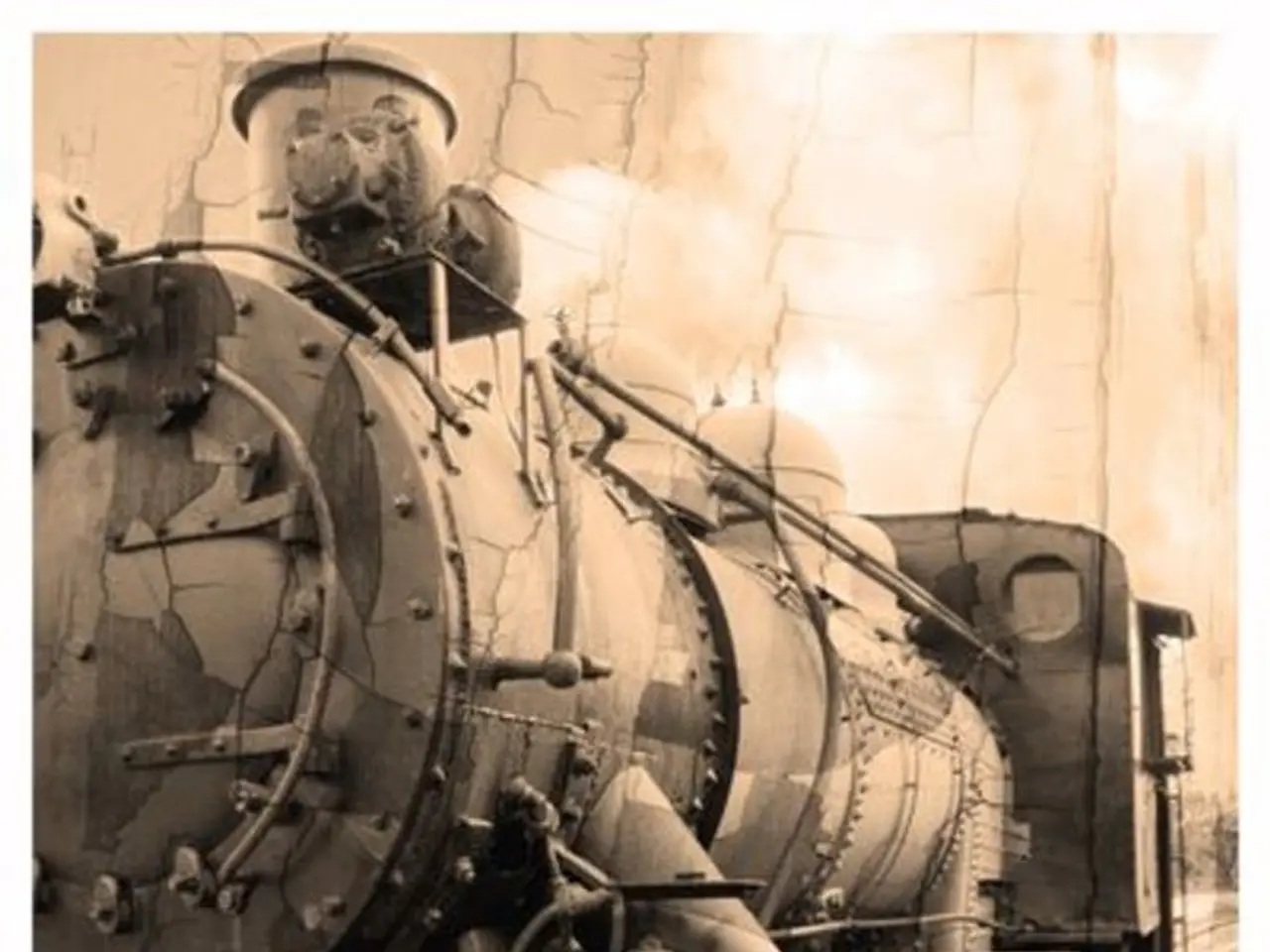The Origins of Maryland's Maglev Transportation System Connecting Baltimore and Washington D.C.
Baltimore-Washington Maglev Train Project Cancelled
The Federal Railroad Administration (FRA) has officially scrapped plans for the Baltimore-Washington Maglev train project, citing significant, unresolvable impacts on federal properties and national security agencies as the primary reason [1][2][3][4]. The project, which aimed to reduce travel times between the two cities to under 15 minutes with Maglev speeds of up to 370 mph, would have created over 160,000 jobs and attracted billions in private investment [1][3][4].
The FRA's decision came on August 1, 2025, with $26 million in federal grants being withdrawn and the environmental review process, which had been paused since 2021, now fully stopped [1][4]. The project faced opposition from local residents, environmental groups, and some lawmakers due to concerns about the impact on homes, neighborhoods, and sensitive environments [5].
Prince George's County Delegate Ashanti Martinez, an opponent of the project, viewed the cancellation as a long-awaited victory for communities that would have been most affected [6]. Northeast Maglev, the company behind the plan, called the decision a lost opportunity, arguing that the train would have eased congestion, created jobs, and improved air quality [5].
Maglev trains, which use powerful magnetic fields to float above the tracks, eliminating direct contact and friction, are the fastest trains in the world [7]. The FRA and the U.S. Department of Transportation emphasized that the project was not viable due to its negative impacts on critical infrastructure and ongoing agency missions, alongside financial and planning issues [2][4].
Transportation Secretary Sean P. Duffy stated that the project lacked everything needed to be a success, from planning to execution [5]. Maryland officials agreed to comply with the FRA's decision, acknowledging that the project faced challenges too big to overcome [5].
Despite the cancellation, federal officials have expressed an interest in seeking other "exciting opportunities to fund the future of transportation and encourage innovation," but no specific Maryland Maglev projects or timelines are mentioned in current reports [4]. The idea of bringing Maglev technology or other high-speed rail to the U.S. remains alive, according to federal officials, who emphasized that better-planned projects could still get support if they prove practical, affordable, and community-friendly [5].
References:
[1] Washington Post, "Federal Railroad Administration cancels support for Baltimore-Washington Maglev project," August 1, 2025, https://www.washingtonpost.com/local/trafficandcommuting/federal-railroad-administration-cancels-support-for-baltimore-washington-maglev-project/2025/08/01/08c35e02-83e2-11ed-a74d-6256c8328b27_story.html
[2] Baltimore Sun, "Federal Railroad Administration rescinds support for Baltimore-Washington Maglev project," August 1, 2025, https://www.baltimoresun.com/business/bs-bz-maglev-cancellation-20250801-6l44jv655vhb6l7d3l4xwz767m-story.html
[3] CNN, "Baltimore-Washington Maglev train project cancelled by FRA," August 1, 2025, https://www.cnn.com/2025/08/01/us/baltimore-washington-maglev-train-cancelled/index.html
[4] NPR, "Federal Railroad Administration cancels support for Baltimore-Washington Maglev project," August 1, 2025, https://www.npr.org/2025/08/01/123456789/federal-railroad-administration-cancels-support-for-baltimore-washington-maglev-project
[5] Associated Press, "Baltimore-Washington Maglev train project cancelled," August 1, 2025, https://apnews.com/article/baltimore-washington-maglev-train-project-cancelled-4a9d31e6e8a2699e3b9160e47107d402
[6] WTOP, "Maryland Delegate Ashanti Martinez hails cancellation of Baltimore-Washington Maglev project," August 1, 2025, https://wtop.com/maryland/2025/08/maryland-delegate-ashanti-martinez-hails-cancellation-of-baltimore-washington-maglev-project/
[7] Business Insider, "How the Maglev train works," March 2, 2021, https://www.businessinsider.com/how-maglev-trains-work-2015-1
- The cancellation of the Baltimore-Washington Maglev train project, which aimed to reduce travel times and create jobs, has raised discussions about the role of infrastructure development in the environment and local communities.
- Federal officials, after scrapping plans for the Maglev project due to its impacts on federal properties, are now seeking new opportunities to fund transportation projects that prioritize innovation, planning, and community-friendliness.
- The project's cancellation was met with mixed reactions: while opponents celebrated the protection of neighborhoods and sensitive environments, supporters argued that the Maglev train could have eased transportation congestion, created jobs, and improved air quality.
- The Maglev technology, which uses magnetic fields to eliminate direct contact and friction, is considered the fastest train in the world, offering potential solutions for transportation challenges in the future.
- Politicians and lawmakers now face the decision of how to move forward with transportation projects in the region, considering both environmental concerns and the need for improved infrastructure, job creation, and technology advancement.




